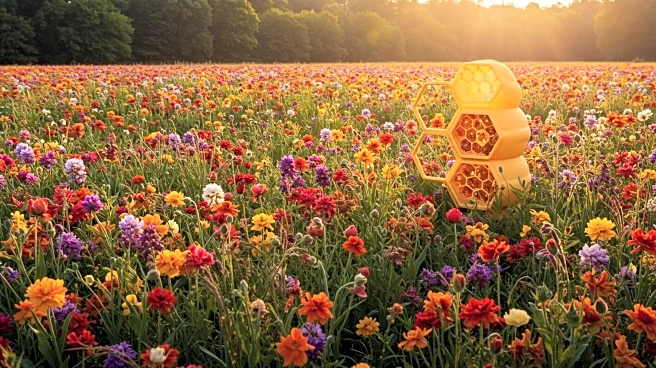What's Happening?
Scientists have developed a honeybee 'superfood' that could protect the animals against threats such as climate change and habitat loss. Bee colonies that consumed the supplement during trials had up to 15 times more baby bees that grew to adulthood. Honeybees are crucial for food production, contributing to the pollination of 70% of leading global crops. The supplement provides all the nutrients bees need to survive, even when pollen is scarce, according to Professor Geraldine Wright at the University of Oxford.
Why It's Important?
The decline in honeybee populations poses a significant threat to global food security, as bees play a vital role in pollinating crops. The development of a 'superfood' could mitigate these losses, ensuring the sustainability of agricultural systems and the availability of diverse food sources. This innovation could also reduce the dependency on traditional beekeeping practices that may not provide adequate nutrition, potentially transforming the industry and improving bee health.
What's Next?
The 'superfood' may be distributed to beekeepers worldwide, offering a new solution to support bee populations. Further trials and research could refine the supplement, enhancing its effectiveness and accessibility. The agricultural industry may adopt new practices to integrate this innovation, potentially leading to policy changes and increased investment in bee conservation efforts.
Beyond the Headlines
The ethical considerations of intervening in natural ecosystems with technological solutions highlight the need for responsible innovation. The cultural significance of bees in agriculture and their role in biodiversity may lead to increased awareness and advocacy for conservation efforts. The development of bee 'superfood' raises questions about the balance between technological intervention and natural processes.









